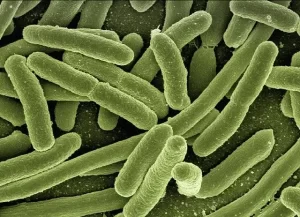COVID-19 can survive longer in winter
COVID-19 can survive longer in winter
COVID-19 can survive longer in winter. Zhang Wenhong, director of the Department of Infectious Diseases at Huashan Hospital Affiliated to Fudan University and leader of the Shanghai COVID-19 Pneumonia Medical Treatment Expert Group, posted a post on Weibo on the evening of November 26, analyzing and recommending the epidemics in Shanghai, Xinjiang, and Kashgar.

Green code guarantees the normal operation of national interconnection and economic life
First, I arrived in Beijing from Shanghai last night. When I checked into the hotel, because there were still local cases in Shanghai, I was slightly worried about whether the stay would be blocked. I am very pleased to see that currently all parts of the country, represented by Beijing, accept green codes for check-in. As long as they are not from a risk area (only a residential area in Pudong in Shanghai is a medium and low risk area), they can stay in hotels. Under the new normal, local cases may occur in various places. According to the principle of precise epidemic prevention, as long as the health code is green, you can move in. This has gradually become the social consensus to ensure the normal operation of national communication and economic life under the new normal.
The COVID-19 virus survives for a long time in winter, and the non-cold-chain logistics should be transported after disinfection and sterilization.
The local cases in Kashgar and Shanghai, China, have been traced to the source, and there have been cases of imported foreign viruses through ordinary logistics outside the cold chain, especially the first local case in Shanghai. After in-depth investigation by the Shanghai CDC brothers, it was found that the container was spreading the virus. source.
At the meeting, Professor Bi Xinhui from the Institute of Geochemistry of the Chinese Academy of Sciences introduced the survival time of the virus after it has remained on the surface and in space. The experts participating in the meeting provided scientific evidence and prevention and control strategies on how to further control the imported overseas epidemic through logistics. With the advent of winter, the time that the virus stays on the surface of the object after it leaves the human body is significantly longer. Low temperature, even 4 degrees Celsius, can keep the virus alive for a long time. However, when the temperature rises under sunlight, the inactivation time is significantly shortened.
Under normal circumstances, the virus will be inactivated quickly in a warehouse with strong light after landing. However, if it is in a cold environment, especially in a wet and cold container that has just landed, the vitality of the virus can be maintained for a long time. Unprotected contact has a greater risk of infection. In view of these risks, in addition to the cold chain, both Kashgar, Shanghai, and Manzhouli should strengthen the disinfection and sterilization of non-cold chain logistics in winter and the disposal in a strong light ventilation environment before transporting them, which can significantly reduce the risk.
Shanghai currently also provides free voluntary emergency vaccination for front-line employees who deal with imported goods, and strengthens protection when contacting foreign imported goods. This is to avoid front-line workers from being infected, and to further reduce and eliminate the risk of imported goods through logistics.



